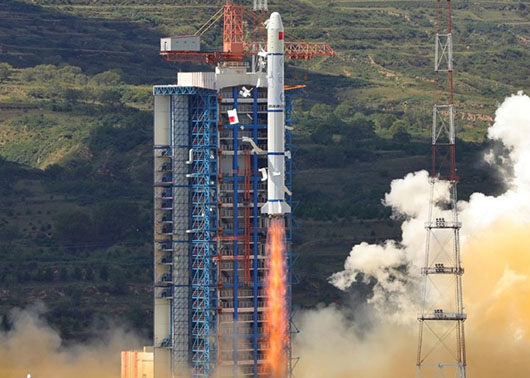FPI / October 20, 2021
Geostrategy-Direct
By Richard Fisher
China’s Fractional Orbital Bombardment System (FOBS) story had an important update in the Oct. 16 issue of the Financial Times.

Unnamed United States sources told the Times that China’s FOBS had flown a simulated orbital strike test in August; it was launched by a Long March-2C (LM-2C) space launch vehicle; it deployed a Hypersonic Glide Vehicle (HGV) warhead, and had missed its target by 24 miles.
But on Oct. 18, Chinese Foreign Ministry spokesman Zhao Lijian denied that China had tested a space weapon, “It was not a missile, it was a space vehicle.”
Zhao further explained it was a test to develop reusable spaceship technology, to “provide a cheap and convenient method for humans to peacefully travel to and from space”
However, statements by unnamed U.S. officials, who likely had access to classified imagery of the Chinese FOBS vehicle, undermine China’s claim.
A reusable space vehicle, most likely a space plane, would not miss its “target,” most likely a runway, by 24 miles. The whole point of a reusable space vehicle is that it not crash but recover to be used again.
On July 16 this year the China Aerospace Science and Technology Corporation (CASC) released its own statement that it had conducted a successful sub-orbital test of a reusable space vehicle.
CASC said it had landed “smoothly and horizontally,” meaning it was likely a small space plane.
In January 2007 when China had committed a previous controversy in space, an anti-satellite interception that created a large and dangerous cloud of debris, it also trotted out its Ministry of Foreign Affairs, which at first claimed it had no knowledge of the test.
This time, however, the Ministry had an almost plausible story because China has great incentive to lie.
A FOBS platform, especially one armed with a Hypersonic Glide Vehicle (HGV) warhead, means China put a weapon in space.
A FOBS test marks a clear indication that China intends to violate the 1967 United Nations Outer Space Treaty, that forbids deploying “nuclear weapons or any other kinds of weapons of mass destruction” in outer space. China joined this treaty in 1984.
Full Text . . . . Current Edition . . . . Subscription Information
Free Press International
